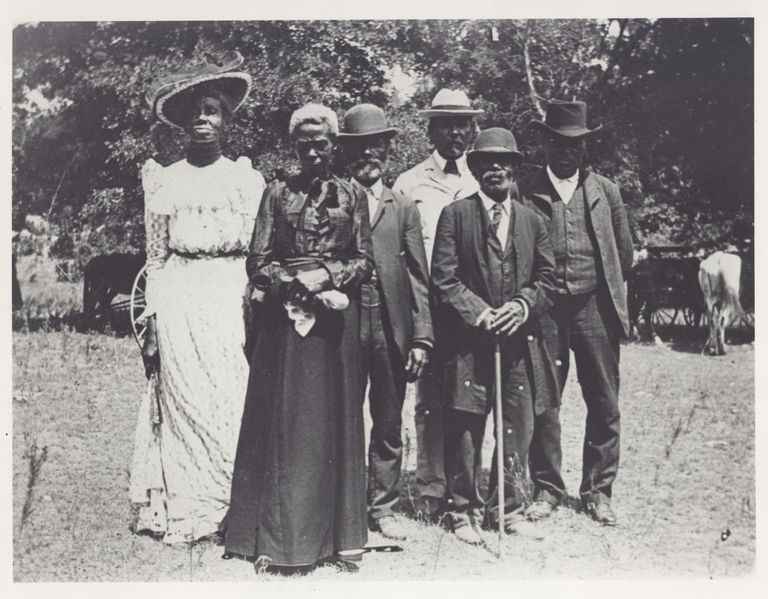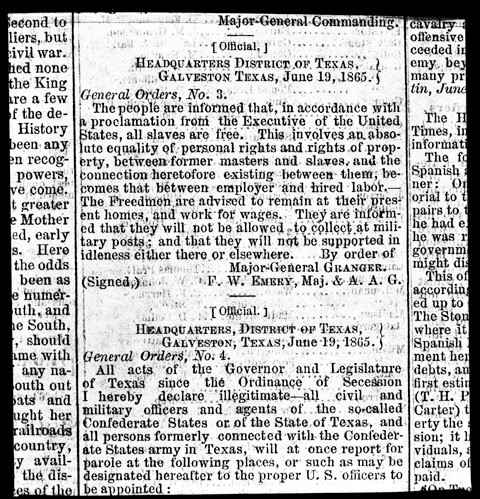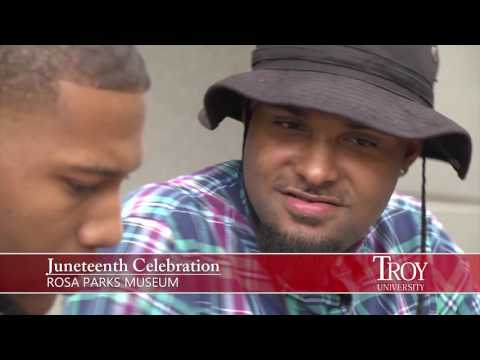The Rosa Parks Museum hosts an annual Juneteenth celebration. This festival is meant to educate the community about the history and significance of Juneteenth as well as to celebrate freedom, equality, and African American culture. The next event will be on June 23, 2018 from 11am - 6pm at the Rosa Parks Museum in downtown Montgomery. There will be food, entertainment, vendors, and free admission into the museum. For more information, RSVP on Facebook.
Read more from the ACLU Archives: The Enduring History of the Civil Rights Movement.

What exactly is Juneteenth?
In its simplest form, it is a made-up word combining “June” and “Nineteenth,” the date that commemorates the official, final abolishment of slavery in the United States. It is also known as Emancipation Day, Freedom Day, and Juneteenth Independence Day. It is celebrated throughout the country much the same way as many Americans celebrate Independence Day, and there is a nation-wide push to get it recognized as a national holiday.
Slavery in this country didn’t fully end with the Emancipation Proclamation on January 1, 1863. While that document did end slavery throughout much of the country, not everyone got the memo. Word of President Lincoln’s emancipation of all enslaved people didn’t get to the town of Galveston, Texas until two and a half years later. On June 19th, 1865, Major General Gordon Granger arrived with the news that the Civil War was over and all slaves were to be freed.

What is Juneteenth now?
Today, Juneteenth celebrations are held throughout the country commemorating this event and celebrating African American freedom with a focus on education and achievement. It is often marked with celebrations, festivals, picnics, and varying other gatherings focused on bringing people together from all walks of life to honestly recognize our shared history while embracing the African American experience, regardless of race, nationality, religion, socioeconomic status, etc.
Juneteenth is about addressing that past openly and honestly.
In its modern form, Juneteenth is about facing those horrors of the past and owning up to the tragedies that happened instead of offering this sanitized version of history. It is also about rising up out of those ashes and obtaining freedom—not just freedom to travel wherever, but true freedom: freedom to be your own self, to name yourself, to choose your spouse, among other things. The South has a long history of downplaying the true institution of slavery, both in its past forms and the forms it takes today (poverty, mass incarceration, etc.). Much of the time, we don’t want to accept that culpability, but until we do and admit we were wrong and are willing to make true retribution, nothing will change. Juneteenth is about addressing that past openly and honestly, and now more than ever, it is important to address this history and work toward bringing individuals and communities together.

